
People suffering from hypertension must undergo regular examinations and tests performed by their general practitioners and also be occasionally evaluated by certain specialists. Hypertension is a systemic disease affecting blood vessels throughout the body. This is the reason why each and every organ can be damaged due to negative effects of hypertension. However, in the majority of cases hypertension affects arteries of the heart, brain, kidneys and eyes.
High Blood Pressure Effects on Blood Vessels
Healthy arteries preserve their elasticity, flexibility and strength. The inner surface of unaffected blood vessels is smooth and blood flows uninterruptedly. As a result, all organs receive sufficient amount of oxygen and other nutrients.
In case of high blood pressure arteries around the body are affected in two ways. First of all, the inner lining of these blood vessels gets gradually damaged and they succumb the process of atherosclerosis. Atherosclerotic plaques narrow the affected blood vessels and reduce blood supply to certain organs. Vital organs such as the heart, brain, kidneys and even eyes are very susceptible to such blood deprivation. Another form of damage hypertension is responsible for is aneurysm. This complication of high blood pressure develops due to the presence of persistent pressure of blood onto the wall of already weakened arteries. The constant pressure leads to bulging of a portion of the affected blood vessels. Such bulging is medically known as aneurysm.
High Blood Pressure and Eye Disease
Elevated blood pressure mostly leads to damage to retinal blood vessels. The condition connecting hypertension and damage to retinal blood vessels is known as hypertensive retinopathy. Left untreated, hypertensive retinopathy gradually progresses and may after some time cause loss of vision.
In the majority of cases patients do not experience any symptom at all. So, hypertensive retinopathy may be asymptomatic and still cause severe damage to the eye. This is the reason why all patients with hypertension, including those who do not complain about any eye problems, must undergo routine eye exams.
Patients in whom hypertensive retinopathy is symptomatic typically complain about headaches and certain vision problems.
Hypertensive Retinopathy - Diagnosis, Treatment and Prevention
The condition is diagnosed during examination of the back of the eye. The exam is performed by an eye care professional with the assistance of an ophthalmoscope. The doctor may notice narrowing of blood vessels, fluid oozing from blood vessels and spots on the retina known as cotton wool spots and exudates. More complex changes include swelling of the macula and an optic nerve. Extreme forms of hypertensive retinopathy cause bleeding in the back of the eye.
The only way to stop further progression of the condition is by maintaining optimal level of blood pressure. Similarly, to prevent the condition from developing in the first place one should take prescribed antihypertensive drugs regularly, eat healthy and engage in regular physical activity.


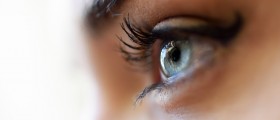







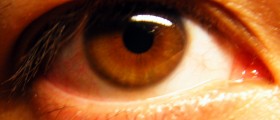
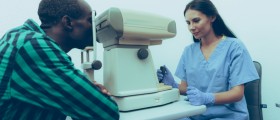

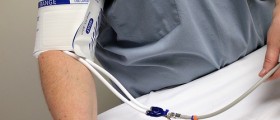


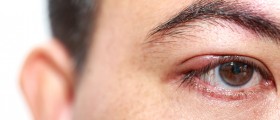
Your thoughts on this
Loading...